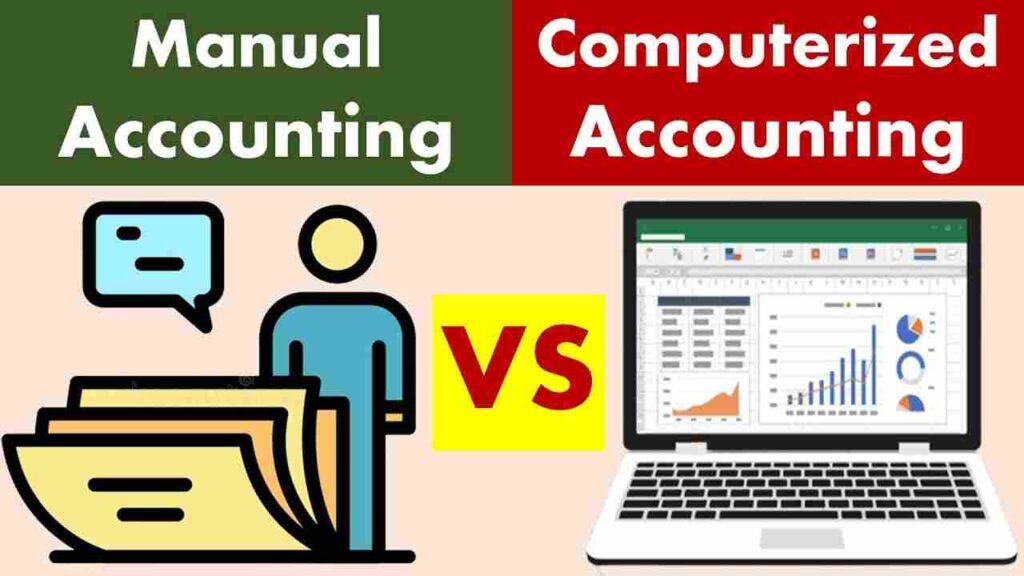
Understand the Ten Difference between manual accounting and computerized accounting
Manual accounting and computerized accounting are two different ways of handling financial information here learn about difference. Manual accounting involves using pen and paper, while computerized accounting utilizes software for greater efficiency, accuracy, and advanced reporting features.
Difference between manual accounting and computerized accounting
Financial transactions can be recorded using either manual accounting or computerised accounting. While computerised accounting uses accounting software to record transactions, manual accounting involves manually recording transactions. Here are ten distinctions between computerised accounting and manual accounting.
Time: One of the biggest differences between computerised accounting and manual accounting is how long it takes to finish a task. Since each entry must be made by hand, manual accounting takes more time. On the other hand, since the software can automate many tasks, computerised accounting is much faster.
Accuracy: While computerised accounting has a lower chance of errors because the software is designed to be precise, manual accounting is subject to human error.
Cost: Manual accounting is more expensive than computerised accounting because it uses more resources and labour. On the other hand, the cost of purchasing and maintaining computerised accounting software can be high.
Flexibility: Manual accounting is more adaptable because it can be modified to meet specific business requirements. On the other hand, computerised accounting has some restrictions because it is dependent on the capabilities of the software.
Analysis: Because computerised accounting can produce reports quickly and easily, it can offer more in-depth analysis and reports. Such in-depth reports might be impossible to produce with manual accounting.
Security: Computerised accounting is safer because it enables password protection and data encryption. There might not be such security precautions in manual accounting.
Financial data is easily accessible thanks to computerised accounting because it is accessible from any location with an internet connection. Physical records must be accessible for manual accounting.
Also Read: Understand 10 Key Difference between Himalayan and peninsular rivers
Scalability: Computerised accounting can handle a higher volume of transactions as the business expands, making it more scalable. It’s possible that manual accounting won’t be able to keep up with the business’s expanding needs.
Training: Manual accounting can be performed by anyone with a basic understanding of accounting, whereas computerised accounting requires specialised training to operate the software.
Usefulness: Because manual accounting calls for manual calculations and entries, it can be trickier to use. Because the software can automate many tasks, computerised accounting is more user-friendly.
Accounting software and manual accounting both have benefits and drawbacks. Despite the fact that computerised accounting is preferable for larger businesses with complex financial transactions, manual accounting may be appropriate for small businesses with few transactions. The choice between the two depends on the needs, size, and financial constraints of the company.